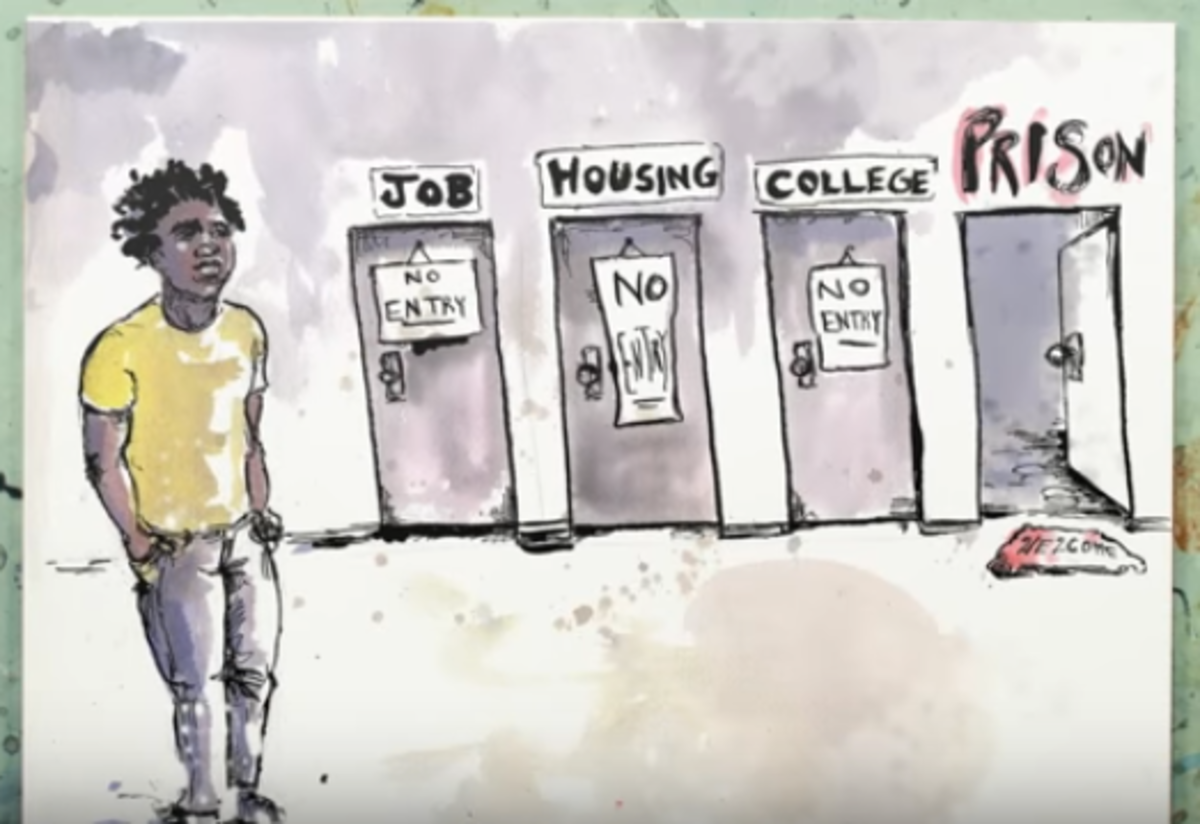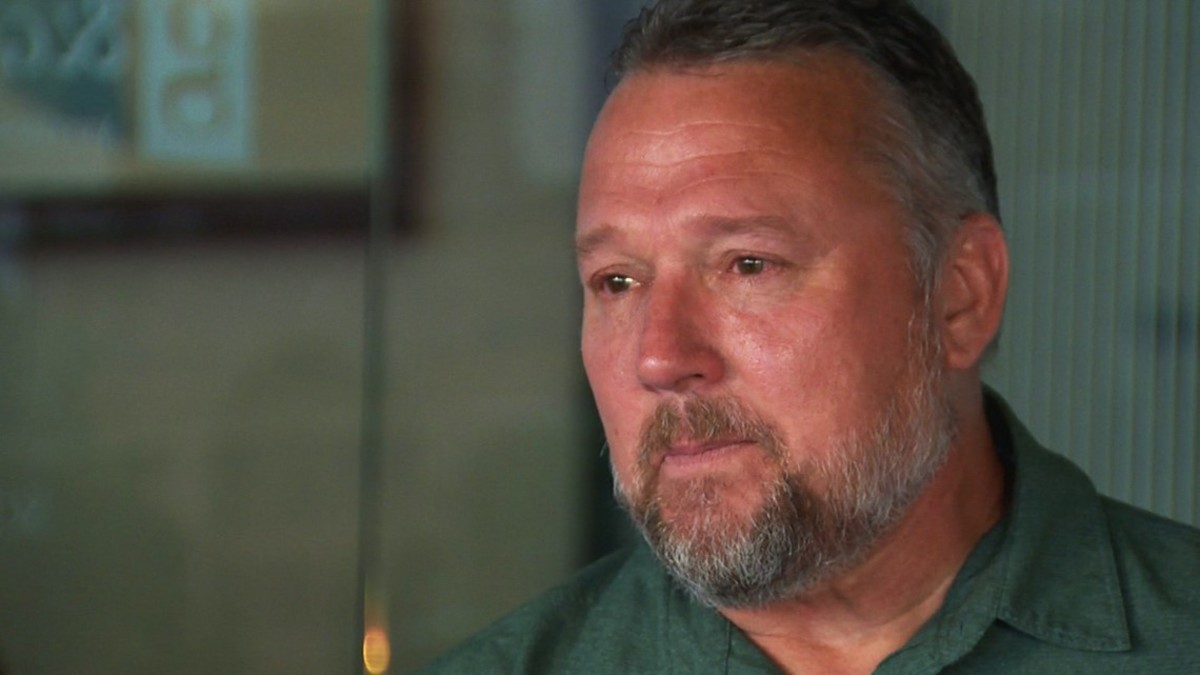The Innocent Project: America's Broken Criminal Justice System


The Innocent Project
They were founded in 1992 by Barry Scheck and Peter Neufeld as a legal clinic at Benjamin N. Cardoza School of Law and supported by individual contributions, foundations, events, and investments. All across the country, similar projects are doing everything they can to keep the exonerations of wrongful convictions. Each year some 3000 write to the innocent Project asking for help. At any given time, the staff are evaluating and openly investigating between 6-8,000 cases. There is no question America has a broken criminal justice system.
There is no question there are innocents in our prisons, and improvements must be made to improve such parts as the accountability that shields law enforcement and prosecutors to act with effective immunity. The United States has the worse record for wrongful convictions, and it is estimated some 10,000 are serving time for crimes they did not commit.
Twenty-six states have no compensation awards for the exonerated and freed prisoners. Some states have no requirements to preserve evidence or guarantee that inmates have access to DNA.
For an exonerated inmate, his life has been wrecked; he has lost his youth, lost the childhood of his children, lost the last years of his parent's lives, lost careers, marriages, and friends.
The Exonerations of 2019
During 2019, exonerations and the reasons behind them:
- One hundred and seventeen exonerations of violent crimes, including 76 homicides, ten child sex abuse convictions, 11 sexual assaults on adults. Three of the homicides had been sentenced to death.
- Nineteen exonerations were for drug crimes.
- Seventeen exonerations were based on DNA evidence.
- Fifty exonerations were for crimes in which NO crime was committed.
- Ninety-three exonerations were based on misconduct by officials.
- Thirty-four exonerations were based on guilty pleas.
- Forty-eight exonerations were based on MISTAKEN WITNESS ID'S.
- Twenty-four were based on False Confessions.
- One hundred and one exonerations were based on perjury or false accusations.
- Eight-seven exonerations were done by Criminal Interdiction Units (CIU), a division of the prosecutorial office working to prevent, identify, and remedy false convictions.
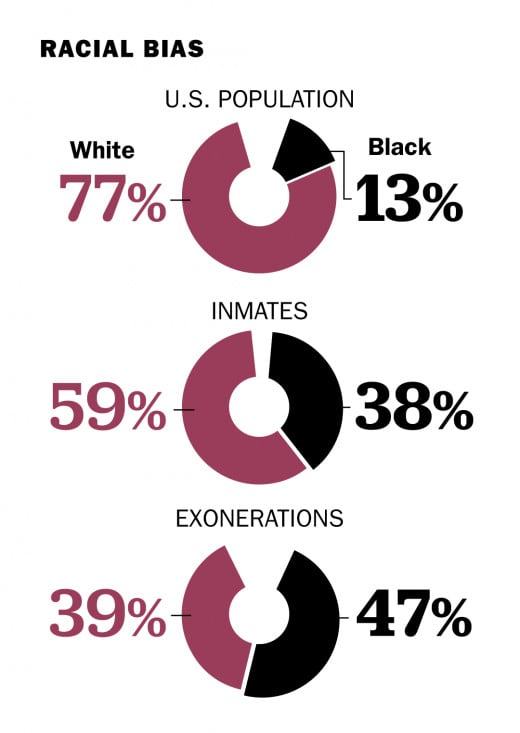
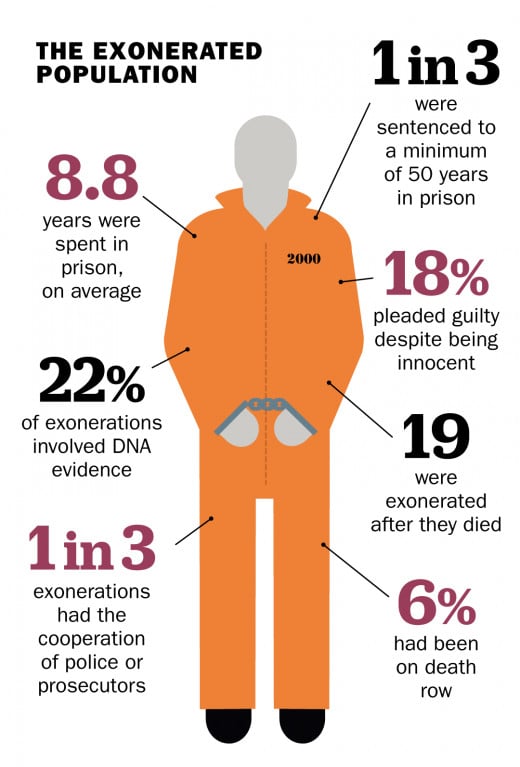
Most Common Reasons For Wrongful Convictions
Here are the most common reasons resulting in wrongful convictions:
- Eyewitness accounts - 48%.
- Unvalidated forensic evidence. In 2019, some 24 cases where prosecutors allowed and even encouraged unreliable forensics.
- False confessions. Easy and frequent to give false confessions after hours of abusive interrogations.
- Jailhouse informants. Usually given shorter sentences by fabrications.
- Police and prosecutor misconduct.
- Poor defence by lawyers.
- Systemic racism.
States with most exonerations: New York, 11; Illinois 30; Pennsylvania 15; Texas 15; Michigan 9; California 7; North Dakota 6; Florida 6.
A Few of Famous Wrongful Convictions
Ricky Johnson: Ricky spent 39 years in prison for a crime he did not commit. The longest time spent behind bars before being found innocent and convicted in 1975 with two other black males accused of murdering a white business person on the sole evidence of a 12-year-old eyewitness account. The witness recounted in 2013 citing police coercion. Charges against Jackson dismissed, and he was released in 1014. He was awarded one million in 2015 from the State of Ohio and another 2.65 million from the Court of Claims.
James Bain. Convicted in 1974 for a rape and kidnapping of a nine-year-old boy. He spent 35 years in prison before being exonerated. Arrested, even though he had an alibi and maintained his innocence. Another case of Eyewitness misidentification.
Albert Woodfox. He was one of the "Angola Three' wrongfully convicted in 1972 of murdering a prison guard. He spent 43 years in solitary isolated in a 6 x 8 cell, allowed one hour a day out. Released in 2016 when his conviction was overturned. He filed for compensation in 2016 on his 69th birthday. The claim is still pending, but since Louisianna is not too keen on wrongful convictions, the outcome is in dispute.
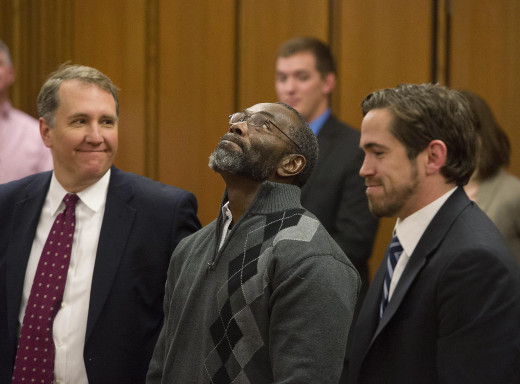

Documentaries of Wrongful Convictions
A few of the important documentaries regarding wrongful convictions:
- After innocence.Focuses on DNA. Received the Sundance Film Festival's Special Prize.
- Death by Fire. 2-010 by PBS. The story of a man accused of a fire that killed his three daughters. Found guilty and executed. In 2004, evidence led to inescapable proof that he DDID NOT set the fire for which he was executed.
- The Confessions. A documentary of the 'Norfolk Four.' Navy sailors convicted of a murder they didn't commit after confessing under undue pressure.
Life After Exoneration
Life after release from prison is different from those pardoned. A pardoned will have a parole officer to assist him, services to help him benefit from a smooth transition to life. Those that are released for exoneration do not those services. They are on their own. They will not be eligible for public housing, they have no credit history, no employment history, have not paid into social security, therefore having no benefits. They are left with nothing but poverty. And even if they were awarded compensation, it would take months to receive, and not every state awards compensation for wrongful convictions. The only other alternative is to sue in civil court and that takes money.
Sources Used
wikipedia
Innocent Project
prison fellowship
eji.org
Chicago Tribune
Tampa News


